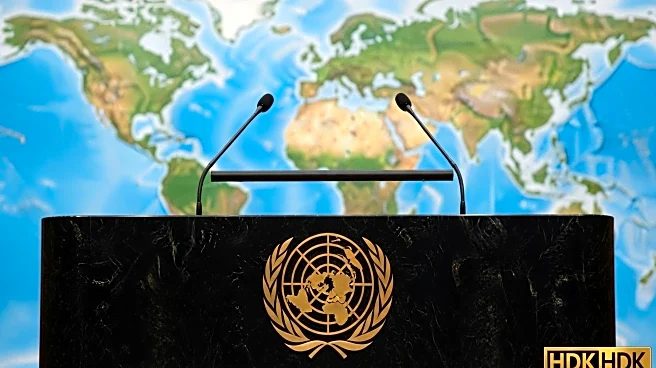What's Happening?
The United Nations General Assembly has voted to permit Palestinian President Mahmoud Abbas to deliver his address via video after the United States revoked his visa. The decision was made with a vote of 145 to 5, with six abstentions. The U.S. had previously revoked visas for around 80 Palestinian officials, including Abbas, citing concerns over their role in undermining peace efforts. This move has been criticized by several U.S. allies and the U.N., which views it as a breach of the Host Country agreement. The visa denial comes amid ongoing tensions related to the Israeli-Palestinian conflict, with efforts by France and Saudi Arabia to advance a two-state solution.
Why It's Important?
The U.S. decision to revoke visas for Palestinian officials, including President Abbas, highlights the complex dynamics of international diplomacy and the Israeli-Palestinian conflict. The U.N.'s decision to allow Abbas to speak by video underscores the international community's commitment to dialogue and the importance of the General Assembly as a platform for global leaders. This situation may affect U.S. relations with its allies and influence ongoing peace negotiations. The broader implications for Middle East peace efforts and the role of international organizations in conflict resolution are significant.
What's Next?
The U.N. General Assembly will proceed with its annual meeting, where Abbas will address the assembly via video. The international community will be watching closely to see how the U.S. and its allies navigate the diplomatic fallout from the visa denial. The ongoing efforts by France and Saudi Arabia to promote a two-state solution will continue to be a focal point in discussions about the future of the Israeli-Palestinian conflict.












